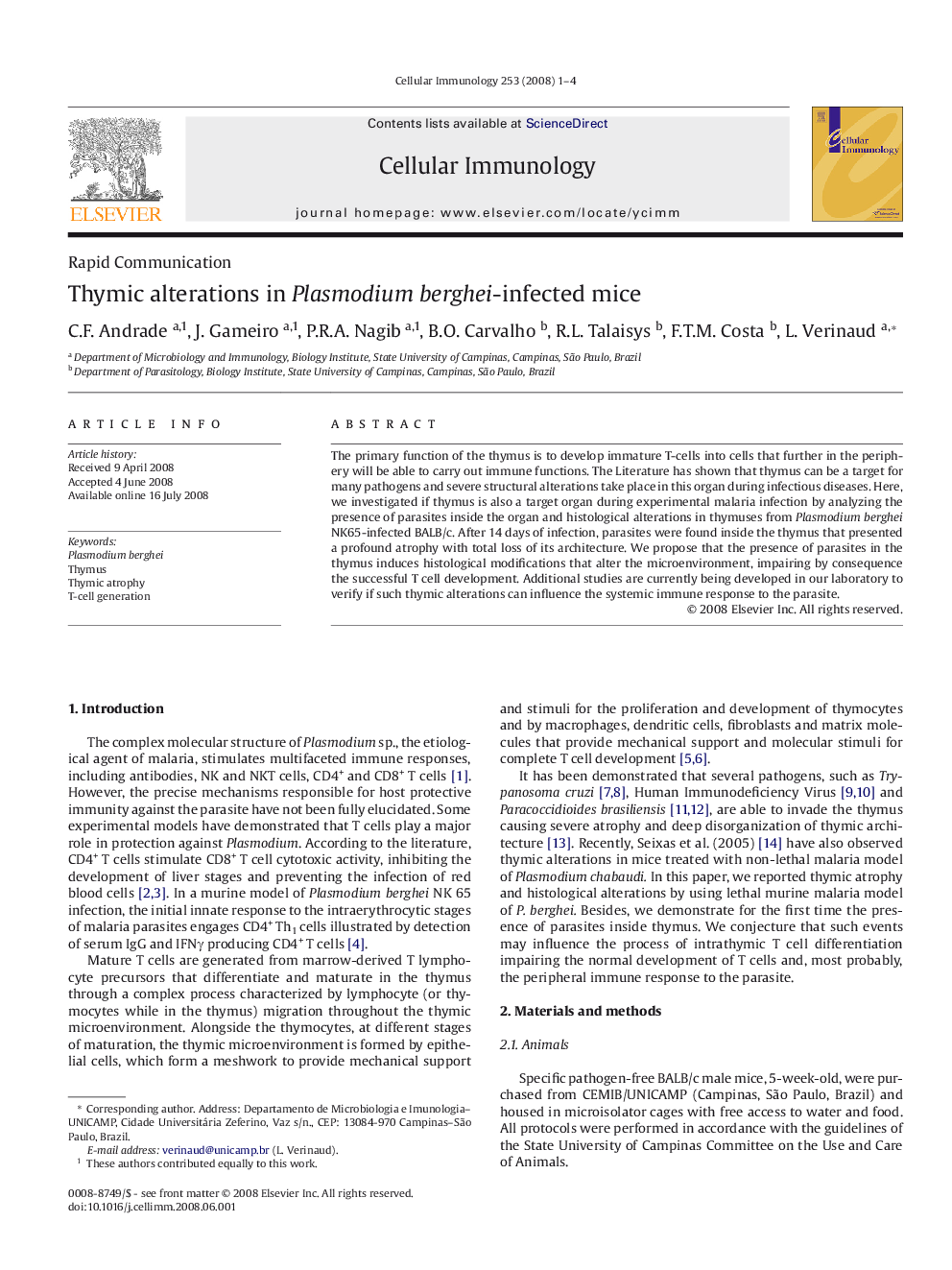| Article ID | Journal | Published Year | Pages | File Type |
|---|---|---|---|---|
| 2167865 | Cellular Immunology | 2008 | 4 Pages |
The primary function of the thymus is to develop immature T-cells into cells that further in the periphery will be able to carry out immune functions. The Literature has shown that thymus can be a target for many pathogens and severe structural alterations take place in this organ during infectious diseases. Here, we investigated if thymus is also a target organ during experimental malaria infection by analyzing the presence of parasites inside the organ and histological alterations in thymuses from Plasmodium berghei NK65-infected BALB/c. After 14 days of infection, parasites were found inside the thymus that presented a profound atrophy with total loss of its architecture. We propose that the presence of parasites in the thymus induces histological modifications that alter the microenvironment, impairing by consequence the successful T cell development. Additional studies are currently being developed in our laboratory to verify if such thymic alterations can influence the systemic immune response to the parasite.
